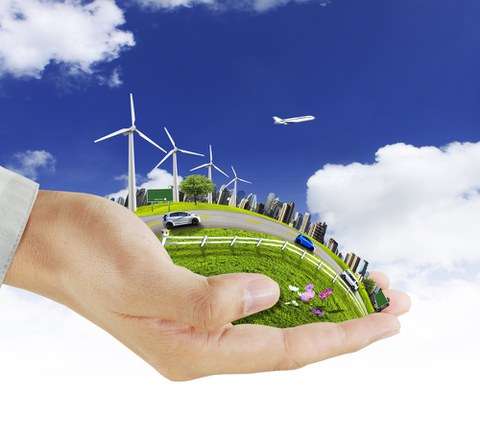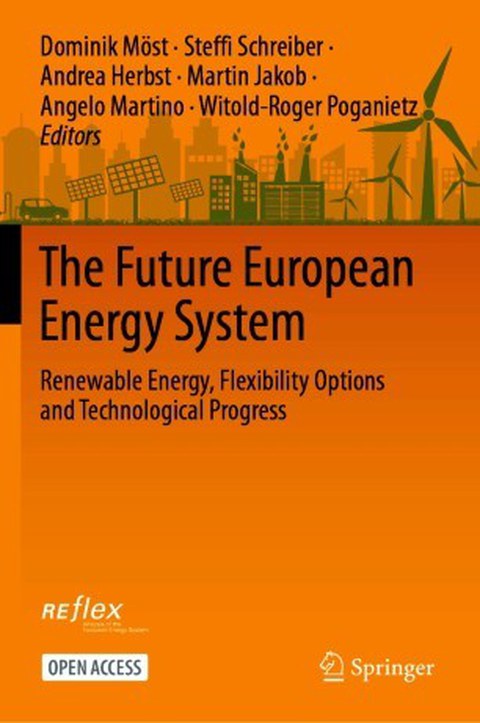Mar 05, 2021
Open Access Book Publication: How the Energy Transition in Europe Can Succeed
The future energy system in Europe needs to be decarbonized and thus will be based almost exclusively on renewable energy sources. Therefore, it is challenged by the intermittent nature of weather-dependent renewables and requires several flexibility options such as storages, demand side management applications, power-to-x technologies. Nevertheless, the interaction between different options, the optimal portfolio and the impact on environment and society were unknown until now and were therefore in the focus of the European Horizon 2020 research project REFLEX - “Analysis of the European energy system under the aspects of flexibility and technological progress” to support the implementation of the European Strategic Energy Technology Plan (SET-Plan).
The REFLEX project was embedded in the EU Horizon 2020 Work Program “Secure, clean and efficient energy” and addressed the topic LCE-21-2015 “Modelling and analysing the energy system, its transformation and impacts” during the project duration from May 2016 until April 2019. Thereby nine partners from six European countries contributed with their expertise, especially in energy system modelling, technological progress and life cycle assessment, to the successful project implementation, in particular: TU Dresden, (Chair of Energy Economics, Prof. Dr. Dominik Möst and European Project Centre) as coordinators.
The REFLEX results and recommendations for action that will help decision-makers in politics to successfully implement the European Strategic Energy Technology Plan (SET-Plan) are summarized in the open-access book publication “The Future European Energy System - Renewable Energy, Flexibility Options and Technological Progress”. This open access book analyses the transition toward a low-carbon energy system in Europe under the aspects of flexibility and technological progress. By covering the main energy sectors – including the industry, residential, tertiary and transport sector as well as the heating and electricity sector – the analysis assesses flexibility requirements in a cross-sectoral energy system with high shares of renewable energies. The contributing authors apply models and tools from various research fields, including techno-economic learning, fundamental energy system modelling, and environmental and social life cycle as well as health impact assessment, to develop an innovative and comprehensive energy models system (EMS). Moreover, the contributions examine renewable penetrations and their contributions to climate change mitigation, and the impacts of available technologies on the energy system.
Given its scope, the book appeals to researchers studying energy systems and markets, professionals and policymakers of the energy industry and readers interested in the transformation to a low-carbon energy system in Europe.
|
Book titel |
The Future European Energy System: Renewable Energy, Flexibility Options and Technological Progress |
|
DOI |
|
|
ISBN |
978-3-030-60913-9 |
|
Project titel |
Analysis of the European energy system under the aspects of flexibility and technological progress (REFLEX) |
|
Financing |
European Commission (within the scope of Horizon 2020 – LCE21) |
|
Website |
|
|
Data Warehouse |
| Contact | Faculty of Business and Economics Chair of Energy Economics Prof. Dr. Dominik Möst |


